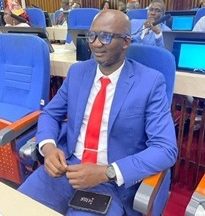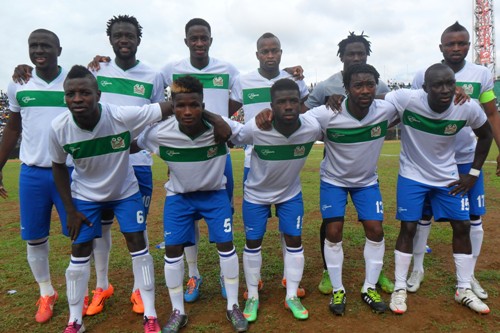Sierra Leone’s escalating national debt and its impact on public welfare dominated discussions during the heated debate on the 2025 national budget in Parliament. Hon. Ibrahim Aziz Bangura, Member of Parliament for Lungi, Port Loko District, raised alarm over the country’s financial stability, warning that the government’s current debt levels are at their highest ever, describing the situation as “extremely risky.”
Referring to the budget’s figures, Bangura compared the country’s public debt under the two major political parties. He noted that from 2007 to 2018, the APC government accrued Le 15 billion in debt over a decade, while the SLPP government racked up Le 36 billion in just six years (2018-2024). He attributed this sharp increase in debt to what he called poor fiscal management by the current administration.
Bangura revealed that a staggering 55% of Sierra Leone’s revenue is being spent on debt servicing, leaving little room for development projects. Despite the government’s heavy borrowing, he pointed out that citizens are still struggling with inadequate public services, particularly the erratic electricity supply. He cited the government’s debt to the Karpowership and a 300% tariff hike as evidence of failed energy policies.
“The people are still suffering with unreliable power, even though the government has accumulated so much debt,” Bangura said. He also highlighted the stagnation of the country’s minimum wage at Le 800, which he argued is insufficient given the rising cost of living. “A bag of rice now costs over Le 1,000, and 92% of Sierra Leoneans are food insecure,” he lamented, calling for a transition from the minimum wage to a living wage.
In his speech, Hon. Bangura also raised concerns about the state of transportation infrastructure in his constituency. He pointed to the critical need for two ferries to facilitate travel between Lungi and Freetown. While two ferries were reportedly delivered from Banjul over six months ago, they remain non-operational, leaving residents to rely on outdated and unreliable transportation. “Most people cannot afford the $5 fare for private sea transport,” Bangura noted, adding that the government’s proposed Lungi Bridge would not be completed in the immediate future.
Further criticizing the government’s track record, Bangura pointed to the Tagrin road project, which has appeared in successive budgets for six years without progress. “Deploying construction machinery for by-elections and then removing them afterward is a disservice to the people,” he stated, urging the government to honor its promises.
The MP also warned against the government’s attempt to rebase the GDP in order to secure additional loans from international financial institutions such as the IMF and World Bank. Bangura cautioned that such moves would worsen the country’s economic difficulties and increase the financial burden on ordinary Sierra Leoneans.
Concluding his remarks, Hon. Bangura called for immediate action to address the pressing issues outlined in the national budget, urging the government to prioritize fiscal responsibility and fulfill its promises to the people. “The people of Sierra Leone deserve better,” he declared.
The debate highlighted the growing concern among lawmakers and citizens alike over the country’s fiscal management and the need for effective resource allocation to address the nation’s challenges.













